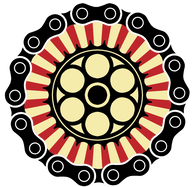Physio assessment
Cost: 60EUR
With over 11 years experience as a chartered physio, you can be assured your injury, whether it be cycling or non-cycling related, will be assessed and treated with the most up to date research findings in mind.
When talking about tendons, it is paramount to get on the right rehab pathway for successful recovery.
It happens too frequently that patients presenting with a tendinopathy are treated with passive modalities such as massage and dry needling. This is not backed by science and will not lead to effective recovery.
Tendinopathy rehab requires the following to be addressed :
Most common tendinopathy complaints :
Tendinopathy can result from a sudden jump in a training plan or a sudden start of a new activity without a gradual introduction to it. This also applies to situations where the activity is stopped for a number of weeks or months and then started again with the same high intensity as before the break in activity. Some people's tendons can cope with this, some can't. It can come down to the health of tendons.
Tendon health is influenced by:
Tendons are amazing in that they adapt their structure depending on the mechanical environment they are exposed to. It is for this reason that people who exercise consistently and frequently are at a lower risk of tendon pain because their tendons have adapted and are managing the levels of mechanical stress. However, people who sit a lot during their work week and then go hard at the weekends (weekend warriors) will be at a higher risk of developing tendon issues. This is because their tendons will not be as robust as those of a more consistently active person. If there is one thing tendons do not like, it's a sudden change in what they are used to!
When you throw in the other influencing factors above into the mix, it can become a complex puzzle to solve. The solution is to understand what is overloading the tendons in question and then bring everything under control with better knowledge and expectations, a specific exercise protocol and patience.
Head over to my dedicated website for physiotherapy for more info, www.lifefitphysio.ie
OR
Get in touch below to schedule a physio assessment and take ownership of the situation.
When talking about tendons, it is paramount to get on the right rehab pathway for successful recovery.
It happens too frequently that patients presenting with a tendinopathy are treated with passive modalities such as massage and dry needling. This is not backed by science and will not lead to effective recovery.
Tendinopathy rehab requires the following to be addressed :
- Explaining the situation in an easy to understand manner to allow the patient to take ownership of the management of the tendinopathy, so that rehab can be progressed independently.
- Lay out the rehab plan including return to sport and/or hobbies.
- The amount of load the tendon is subject to and getting this load (e.g. volume of running) into an optimal range which will not result in a reaction from the symptomatic tendon.
- Gradually progressing the load through resistance training to the muscle/muscles in question in order to strengthen the area and improve the health of the tendon.
- Correcting any abnormal movement patterns or habits that may be driving the pain.
- Final end stage rehab involving high load activities and sport specific movements.
Most common tendinopathy complaints :
- Rotator cuff tendinopathy
- Achilles tendinopathy
- Peroneal tendinopathy
- Patellar tendinoapthy
- Glute med tendinopathy
- Tennis elbow
- Platar fasciitis
Tendinopathy can result from a sudden jump in a training plan or a sudden start of a new activity without a gradual introduction to it. This also applies to situations where the activity is stopped for a number of weeks or months and then started again with the same high intensity as before the break in activity. Some people's tendons can cope with this, some can't. It can come down to the health of tendons.
Tendon health is influenced by:
- Age, Gender
- Smoking, Alcohol, Diet, Stress Levels
- Habitual exercise levels (weekend warriors more likely to present with tendinopathy)
- Genetics
Tendons are amazing in that they adapt their structure depending on the mechanical environment they are exposed to. It is for this reason that people who exercise consistently and frequently are at a lower risk of tendon pain because their tendons have adapted and are managing the levels of mechanical stress. However, people who sit a lot during their work week and then go hard at the weekends (weekend warriors) will be at a higher risk of developing tendon issues. This is because their tendons will not be as robust as those of a more consistently active person. If there is one thing tendons do not like, it's a sudden change in what they are used to!
When you throw in the other influencing factors above into the mix, it can become a complex puzzle to solve. The solution is to understand what is overloading the tendons in question and then bring everything under control with better knowledge and expectations, a specific exercise protocol and patience.
Head over to my dedicated website for physiotherapy for more info, www.lifefitphysio.ie
OR
Get in touch below to schedule a physio assessment and take ownership of the situation.
